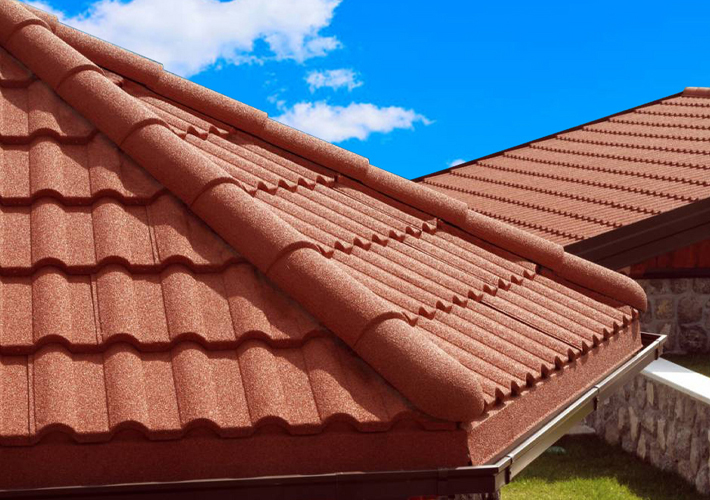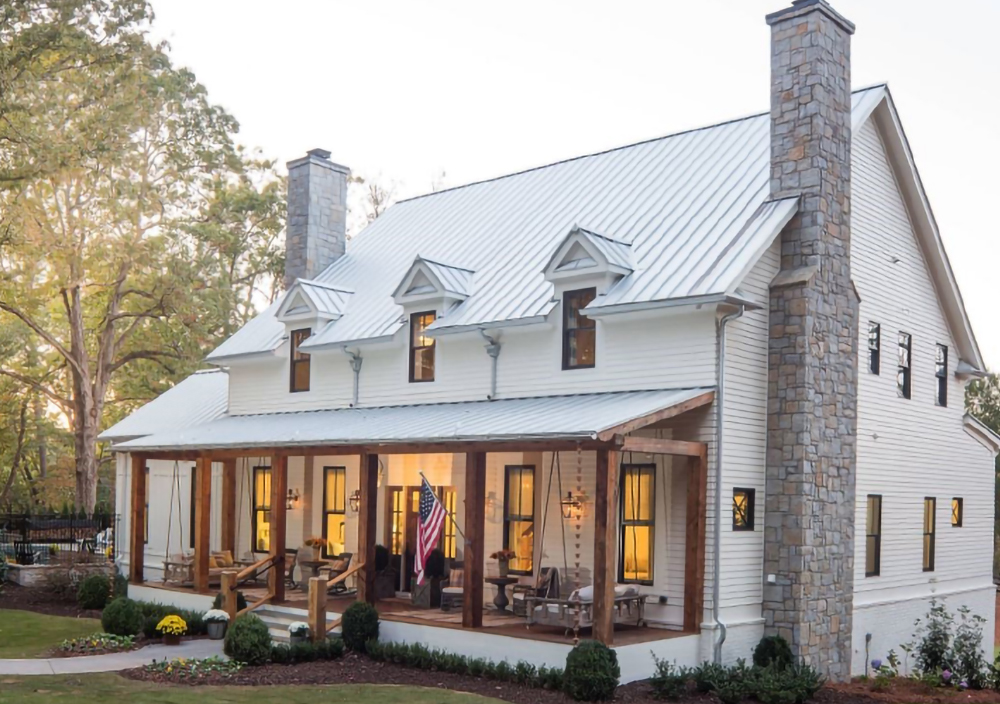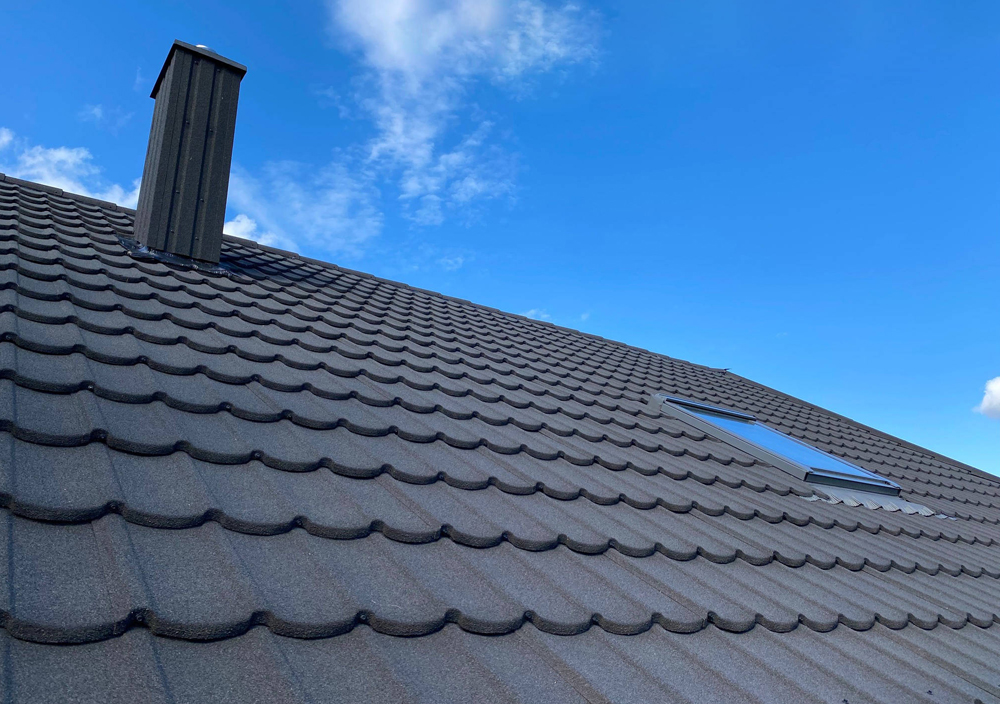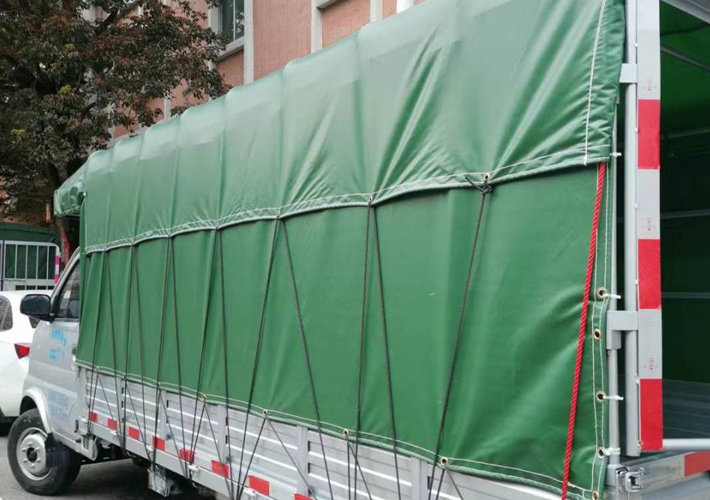Introduction
Stone-coated roofing has gained popularity due to its strength, durability, and aesthetic appeal. In regions prone to extreme weather, such as hurricanes, blizzards, and hailstorms, choosing the right roofing material becomes even more crucial. Stone-coated roofing tiles combine the durability of metal with the elegance of stone, providing both protection and visual appeal. However, not all suppliers offer the same level of quality and performance. For homeowners, businesses, and contractors, selecting a reliable supplier is key to ensuring the longevity and performance of the roof. This article explores the essential factors to consider when choosing durable stone-coated roofing suppliers who can deliver high-quality products that perform well under extreme weather conditions.

1. Understanding Stone-Coated Roofing and Its Benefits
What is Stone-Coated Roofing?
Stone-coated roofing is a metal roofing system that uses stone chips bonded to a metal substrate, typically steel, coated with a corrosion-resistant layer. This design provides the roof with a stone-like aesthetic while offering the strength and durability of metal. The metal base material helps the roof handle extreme temperatures, while the stone granules add additional protection against elements such as UV radiation and wind damage.
Benefits for Extreme Weather:
- Wind Resistance: Stone-coated roofs are designed to resist high wind speeds, often up to 120-150 mph or more. The interlocking panels make it difficult for winds to lift the tiles, making them ideal for hurricane-prone areas.
- Impact Resistance: Stone-coated roofs are resistant to hail and falling debris. The stone granules protect the metal surface from damage, making them an excellent choice for regions with heavy storms or hail.
- Temperature Regulation: Stone-coated roofing provides better insulation, maintaining a consistent indoor temperature by reducing heat absorption in the summer and preventing heat loss in winter.
- Fire Resistance: The non-combustible properties of the metal and stone make stone-coated roofs highly resistant to fires, an essential feature in wildfire-prone areas.
2.Identifying the Key Features of Durable Roofing
Weather Resistance: Stone-coated roofing is designed for extreme weather conditions, offering superior resistance to:
- UV Radiation: The stone granules provide UV protection, preventing the roof from degrading due to sun exposure. UV degradation is common in lower-quality roofing materials, leading to fading, cracking, and a shorter lifespan.
- Moisture and Corrosion: The metal substrate beneath the stone granules is coated with a protective layer (such as a zinc or aluminum coating) to prevent rust and corrosion. This is particularly important for coastal areas or regions with high humidity.
- Wind Resistance: Stone-coated roofing is specifically engineered to withstand extreme wind speeds, thanks to the interlocking design and the added weight of the stone granules.
Material Quality: The quality of materials used is one of the most important factors to consider when choosing a roofing supplier:
- Base Metal (Steel vs. Aluminum): Steel is the most common base material due to its strength and cost-effectiveness, but aluminum is often preferred in coastal areas because of its superior corrosion resistance. Discuss the trade-offs between the two materials, and explain why steel is commonly used in stone-coated roofing systems.
- Coating Quality: Suppliers who use high-quality, multi-layer coatings on their metal roofing materials will provide better protection against corrosion. Look for coatings that resist saltwater corrosion, especially in coastal regions.
Energy Efficiency: Stone-coated roofing can improve a building’s energy efficiency by reducing heat absorption and enhancing insulation. This is especially important in areas with extreme temperature fluctuations. These roofing systems can help reduce heating and cooling costs by reflecting more sunlight in hot climates and providing better thermal resistance in colder regions.
Longevity and Maintenance: Quality stone-coated roofs are designed to last for decades, often with warranties of 50 years or more. Minimal maintenance is required since they resist corrosion, fading, and damage from extreme weather. Regular inspection is advised, but the need for repairs is significantly reduced when using durable roofing materials.

3. Evaluating Supplier Reputation and Experience
Supplier Experience with Extreme Weather: When choosing a supplier for stone-coated roofing, it’s important to consider their experience in regions with extreme weather. Look for suppliers who have worked in areas prone to hurricanes, hailstorms, wildfires, and heavy snow. Experienced suppliers are likely to understand the specific needs of their customers and offer products tailored to local climate conditions.
Reputation and Customer Feedback:
- Reviews and Testimonials: Research customer reviews, case studies, and testimonials to assess the quality and performance of a supplier’s products. Look for feedback from customers who live in areas with extreme weather to ensure that the roofing systems have withstood the test of time.
- Referrals and Recommendations: Ask for referrals from contractors or builders who have experience with stone-coated roofs. Professional recommendations can provide valuable insights into a supplier’s reliability and product quality.
Certifications and Standards: Ensure that the supplier’s products meet international standards and certifications for durability and performance. Look for certifications like UL (Underwriters Laboratories) for fire resistance, FM Global for wind resistance, or ISO certifications that demonstrate the supplier’s commitment to quality.
4. Product Testing and Warranty Considerations
Understanding Testing Protocols: A reliable supplier will conduct rigorous testing of their roofing systems to ensure they meet the demands of extreme weather. Important tests include:
- Impact Resistance Testing: This simulates the impact of hailstones or debris on the roofing material.
- Wind Uplift Testing: Measures the ability of the roof to resist being lifted off by high winds.
- Fire Resistance Testing: Ensures the roofing system is non-combustible and will not catch fire during wildfires.
- Thermal Cycling: Tests how well the roofing material can handle temperature fluctuations without cracking or degrading.
Evaluating Warranties: A strong warranty is a clear indicator of a supplier’s confidence in their product. When evaluating warranties, consider:
- Duration of the Warranty: A good warranty should last at least 30-50 years, covering both the material and, in some cases, the installation.
- Warranty Coverage: Ensure the warranty covers not only manufacturing defects but also extreme weather-related damage, such as wind uplift or hail impact.
- Transferability: Some warranties are transferable, which can increase the roof’s resale value.

5. Supply Chain and Manufacturing Capabilities
Production Capacity: A reliable supplier should have the manufacturing capacity to handle large-scale orders, especially in regions prone to extreme weather where demand for roofing materials may spike after natural disasters. Look for suppliers with robust production lines and efficient distribution networks to ensure timely delivery.
Transparency and Quality Control:
- Production Transparency: Suppliers who are open about their manufacturing processes and sourcing of raw materials demonstrate a commitment to quality.
- Quality Control Measures: Suppliers with strict quality control processes are more likely to produce roofing materials that meet or exceed industry standards. Ask about their testing procedures and how they ensure consistent product quality.
6. Price vs. Quality Considerations
Pricing Structure: While price is an important factor, it should not be the sole consideration. A low price may indicate subpar materials or manufacturing processes that could compromise the roof’s durability in extreme weather. It’s essential to balance cost with quality.
Long-Term Investment: Stone-coated roofs may have a higher upfront cost compared to traditional asphalt shingles or other materials, but their longevity, reduced maintenance, and energy efficiency make them a better long-term investment. When evaluating cost, consider the total cost of ownership over the roof’s lifespan.

7. Customer Support and After-Sales Service
Support During Installation: Ensure the supplier offers technical support during installation, especially if you are working with a contractor unfamiliar with stone-coated roofing systems. This support may include guidance on the installation process, as well as troubleshooting assistance.
After-Sales Services:
- Product Guarantees and Returns: A reputable supplier should offer guarantees for their products and allow for returns or replacements if the roofing material is found to be defective.
- Maintenance and Repair Support: Some suppliers offer after-sales maintenance services, helping clients to maintain their roofs and addressing any issues promptly.
Conclusion
In conclusion, selecting the right stone-coated roofing supplier for extreme weather requires careful evaluation of several factors, including product durability, supplier experience, reputation, testing standards, and warranty terms. By choosing a reliable supplier with a proven track record in extreme weather conditions, customers can ensure that their stone-coated roofing system will provide long-lasting protection, aesthetics, and energy efficiency, regardless of the weather challenges ahead.




